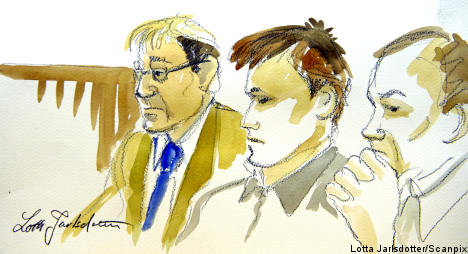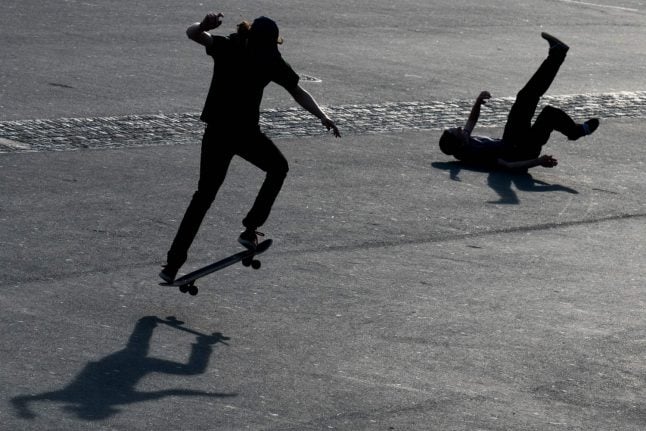The court proceedings were suspended until further notice.
The teenager suffered a panic attack after relating the story of the killing to the court. He had previously told the court about his relationship to Therese.
“The reaction was so severe that an ambulance was called and he was taken to Huddinge hospital. He was not carried on a stretcher and was able to walk by himself,” the boy’s lawyer, Claes Borgström, told the TT news agency.
The cross-examination of the boy would have continued on Thursday afternoon, but will now be delayed until further notice.
“I would have thought that the cross-examination can be resumed on Tuesday when the proceedings reconvene. In the interim he will receive help to work through his feelings and recover,” Borgström said.
The 16-year-old will receive medical attention and be taken to the youth detention centre where he is being held and will then receive help from a psychologist.
Borgström claimed that the boy had received sufficient help and support during the trial.
“Yes, I think so. He has me, his parents and staff from the social services with him in court,” Borgström said.
The 16-year-old female defendant’s lawyer, Jan Karlsson, says that he has a raft of questions to put to the boy, which he hopes to be able to ask on Tuesday if the boy’s health allows it.
“The case hangs on the testimony of the young defendants and the text messages. Witness testimony has less bearing,” Karlsson said.
Karlsson said that his defendant has also suffered from the day’s events.
“She has been feeling very upset all along and that did not improve as a result of this,” he said.



 Please whitelist us to continue reading.
Please whitelist us to continue reading.
Member comments